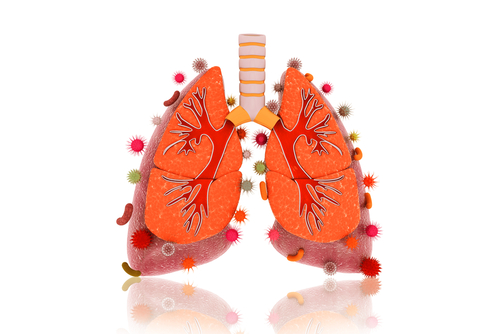A small, pilot Phase 1/2 clinical trial evaluating the safety and efficacy of Thiolanox inhaled nitric oxide gas in treating nontuberculous mycobacteria (NTM) infection has been approved by Health Canada.
Patients with non-cystic fibrosis bronchiectasis, chronic obstructive pulmonary disease, and other chronic lung illnesses are at particularly high risk of contracting NTM infections. These are commonly caused by inhalation of Mycobacterium avium complex (MAC), Mycobacterium kansasii, and Mycobacterium abscessus complex (MABSC) opportunistic microorganisms.
Difficult to eradicate, these bacteria can require long-term antibiotic therapy, which can promote the development of multi-drug resistant bacteria strains. Alternative treatments that can tackle NTM infections are, for this reason, of high interest.
Nitric oxide is a small molecule that is naturally produced by the body, and takes part in several important biological mechanisms, including body defense. The use of external nitric oxide has been shown to work as an effective antimicrobial agent, and to be safe and well-tolerated in clinical trials.
Use of nitric oxide at low concentrations is approved in Canada to treat pulmonary hypertension in newborns.
Thiolanox is a nitric oxide gas formulation developed by Novoteris that is administrated using the company’s computerized trace-gas delivery system. Based on a mixture of 0.5% of nitric oxide with 99.5% of medical grade nitrogen, it is designed to promote antibacterial mechanisms directly in the lungs upon inhalation.
The pilot clinical trial (NCT03331445) will evaluate the safety of Thiolanox, primarily, but also its efficacy in treating NTM infection in adults. Led by Jeremy D. Road, MD, professor at University of British Columbia, the study will enroll 10 people diagnosed with MAC or MABSC infection.
“The clearances by Health Canada will enable us to expand our work with this novel therapy to a wider range of people with an exceptional need for more effective antimicrobials,” Alex Stenzler, president of Novoteris, said in a press release.
The primary objective of the study is to determine any safety issues related to nitric oxide inhalation in a NTM-infected population. The investigators will also evaluate the impact of the treatment on patient’s lung function, measured as change from baseline on forced expiratory volume, and its capacity to eliminate the bacteria.
The trial is currently recruiting patients at its Vancouver site. For more information, please click on this link.

